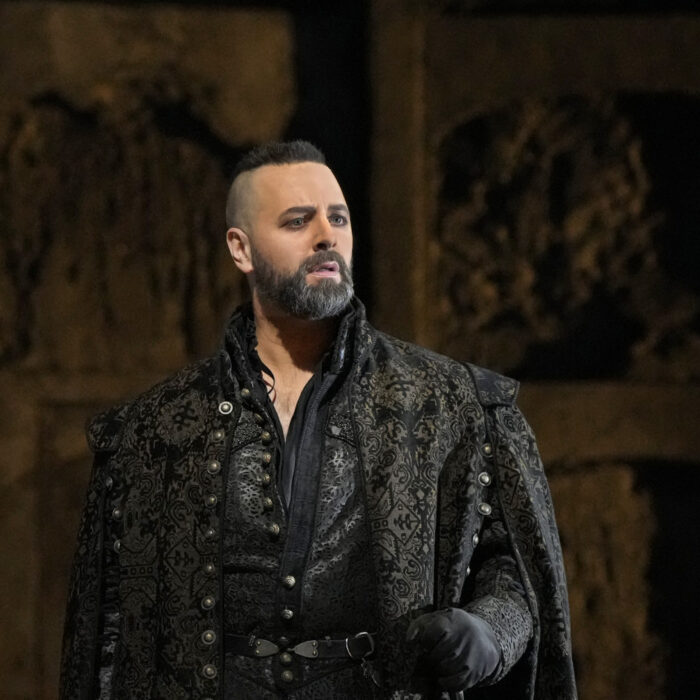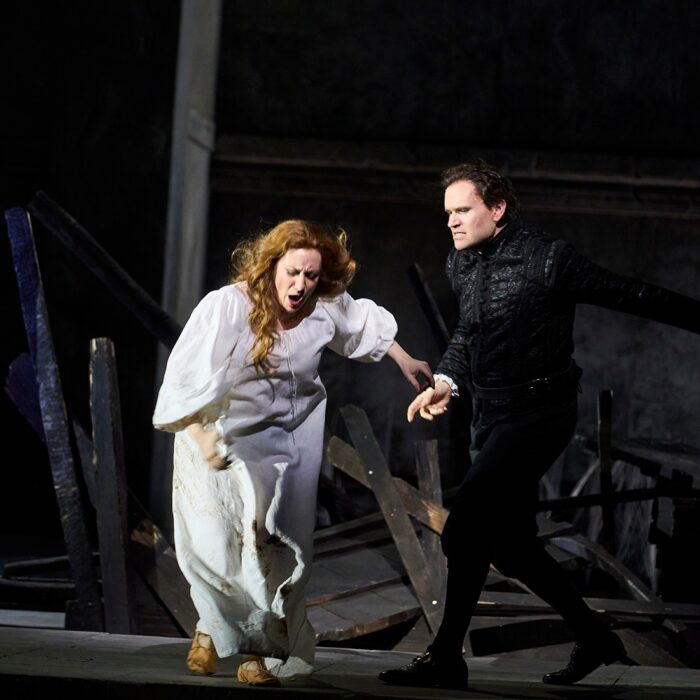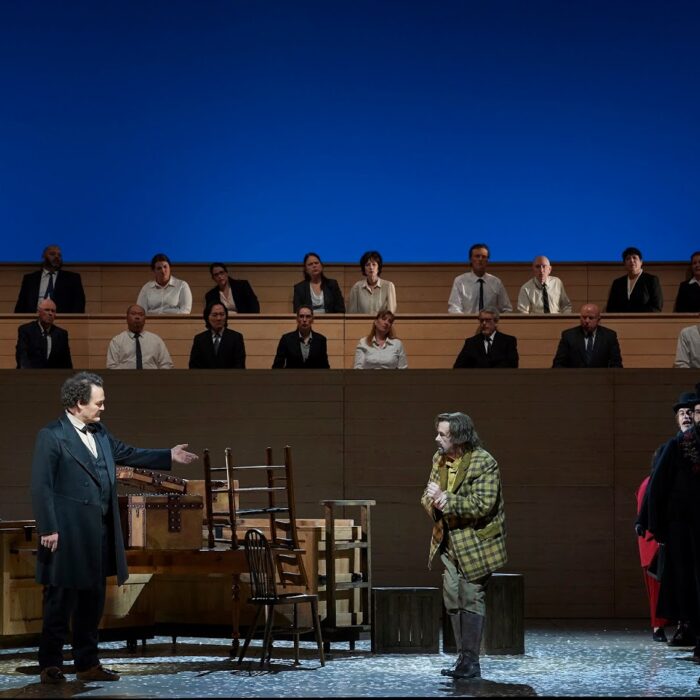
Guest Post: The Impossible Balance of a ‘Mom Conductor’
How Marie Bucoy-Calavan Found Her Life Calling Between Podium & Crib
By Marie Bucoy-CalavanYes, you can be a conductor and a mother. But no one told me that. The classical music world rarely talks about women on the podium who are also mothers. I want the next generation to know that it’s possible—even if it’s exhausting.
When I was 21, I decided I wanted to be a conductor at the highest level. Inspired by my teacher and mentor, Robert Istad, I began studying everything I could—watching videos, listening to recordings, researching the backgrounds of the greats. But as I wrote down names and dug into their careers, I noticed something unsettling: every single one of them was a man.
I searched harder, determined to find women who had blazed this trail. I found a few—but almost none had children. And if they did, it was never mentioned. Motherhood and conducting were never written about in the same sentence. To me, the message was clear: if I wanted to be a conductor, motherhood had to be off the table.
I threw myself into the path I thought was required: mastering repertoire, attending workshops, auditioning at the right schools, earning my doctorate, securing a tenure-track position. I even let myself fall in love and marry, though part of me feared that relationships might derail my ambitions. But one belief remained firm: I could not be both a conductor and a mother.
Then came 2020. For me, the pandemic wasn’t just “COVID times”—it was the year music broke up with me. Choirs were labeled “super spreaders,” and the ensembles I had built my life around went silent. My husband, Kevin, however, reminded me of something I had long dismissed: that we could build a family. A year later, my daughter Corinne was born. No concert I’ve ever conducted could match the love I felt when I first held her.
But the challenges were immediate. Corinne never took to a bottle, so I was constantly shuttling between classes and nursing. I feared leaking through my blouse while conducting. Sleepless nights became the norm, and my only time for score study came in the early morning hours after she finally went down. I battled postpartum anxiety and depression while trying to stand tall on the podium.
And yet, the deepest struggle wasn’t logistical—it was emotional. Conducting gives me a profound sense of purpose, a feeling that I am exactly where I’m meant to be. But rehearsals and performances often coincide with bedtime—the magical rituals of singing to my children, holding them close, tucking them in. Missing those moments feels like failing another sacred calling. Add sleep deprivation to the mix, and I sometimes feel set up for failure: never able to give 100 percent to anyone, whether it be my musicians, my children, or my husband.
Still, life pushed me forward. While eight months pregnant with my son, Bennett, I was named Artistic Director of the Choral Arts Society of Washington. Two months after his birth, we moved to D.C. Suddenly, I was in a new city, leading a major chorus, and mothering two very small children. The demands on my body, mind, and spirit were immense.
I do not discount the struggles of fatherhood, nor do I wish to diminish the balancing act of male conductors with families. But their stories—and their struggles—are often invisible. I’ve heard countless tales of male conductors having children, then returning to the podium seemingly unshaken. And when women conductors have children, their stories are absent altogether.
But perhaps they shouldn’t be. Perhaps people should know what it means to be a “mom conductor:” to toggle between score study and car seats, board luncheons and daycare lunches, late-night rehearsals and even later-night feedings. Why shouldn’t we embrace that title openly?
The truth is, I have only managed this balancing act because of the unwavering support around me. Kevin has fully embraced my career, giving so much of himself as both father and partner. My parents have been an anchor of stability. And crucially, I now work for an organization that doesn’t just tolerate my motherhood—it embraces it. When I guest conducted for Berkshire Choral International in Berlin last year, I did so with the full support of knowing that my husband and children were part of the package. That kind of acceptance has made all the difference.
I want this to become the norm. For too long, women in classical music have been told—explicitly or implicitly—that they must choose between podium and parenthood. Some may decide not to have children, and I deeply respect and celebrate that choice. But others, like me, want both. We need more visible examples of women balancing motherhood with conducting, so the next generation knows it’s possible—excruciatingly difficult, yes—but possible.
I know I am not the first conductor to raise children while leading from the podium. But for the young woman I once was—searching desperately for role models and finding none—I hope to be one more visible voice. A reminder that it has been done, it can be done, and it deserves to be seen.
Categories
Special Features


